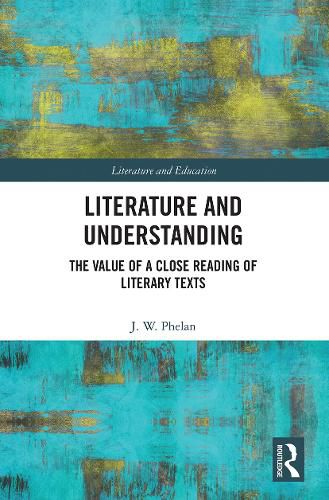Readings Newsletter
Become a Readings Member to make your shopping experience even easier.
Sign in or sign up for free!
You’re not far away from qualifying for FREE standard shipping within Australia
You’ve qualified for FREE standard shipping within Australia
The cart is loading…






Literature and Understanding investigates the cognitive gain from literature by focussing on a reader’s close analysis of a literary text. It examines the meaning of ‘literature’, outlines the most prominent positions in the literary cognitivism debate, explores the practice of close reading from a philosophical perspective, provides a fresh account of what we mean by ‘understanding’ and in so doing opens up a new area of research in the philosophy of literature.
This book provides a different reply to the challenge that we can’t learn anything worthwhile from reading literary fiction. It makes the innovative case that reading literary fiction as literature rather than as fiction stimulates five relevant senses of understanding. The book uses examples of irony, metaphor, play with perspective and ambiguity to illustrate this contention. Before arguing that these five senses of understanding bridge the gap between our understanding of a literary text and our understanding of the world beyond that text.
The book will be of great interest for researchers, scholars and post-graduate students in the fields of aesthetics, literary theory, literature in education and pedagogy.
$9.00 standard shipping within Australia
FREE standard shipping within Australia for orders over $100.00
Express & International shipping calculated at checkout
Literature and Understanding investigates the cognitive gain from literature by focussing on a reader’s close analysis of a literary text. It examines the meaning of ‘literature’, outlines the most prominent positions in the literary cognitivism debate, explores the practice of close reading from a philosophical perspective, provides a fresh account of what we mean by ‘understanding’ and in so doing opens up a new area of research in the philosophy of literature.
This book provides a different reply to the challenge that we can’t learn anything worthwhile from reading literary fiction. It makes the innovative case that reading literary fiction as literature rather than as fiction stimulates five relevant senses of understanding. The book uses examples of irony, metaphor, play with perspective and ambiguity to illustrate this contention. Before arguing that these five senses of understanding bridge the gap between our understanding of a literary text and our understanding of the world beyond that text.
The book will be of great interest for researchers, scholars and post-graduate students in the fields of aesthetics, literary theory, literature in education and pedagogy.